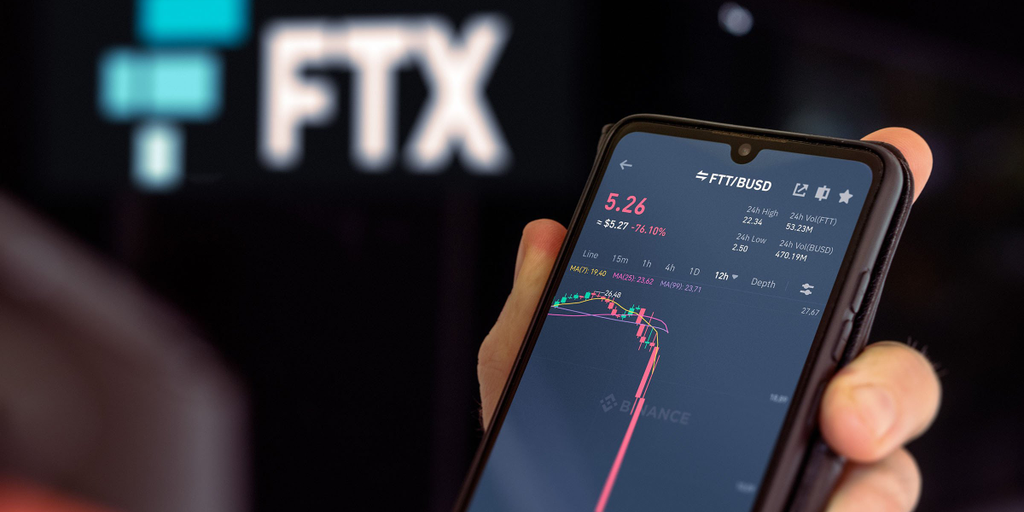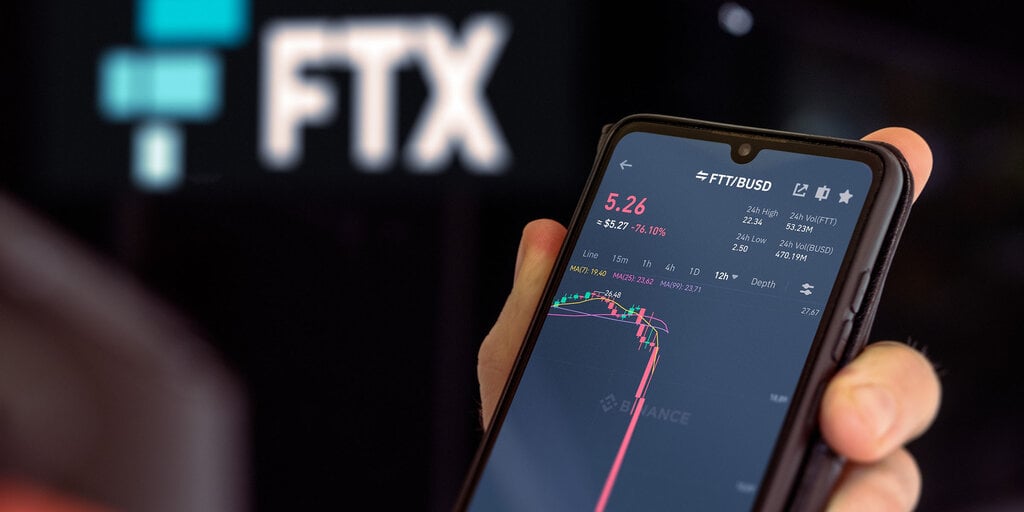
Bitcoin, Ethereum, Dogecoin, and Solana: these are the coins that were mentioned during the proceedings of the first day of FTX founder Sam Bankman-Fried’s criminal trial. But the exchange’s native token, FTT, went notably unnamed.
Within crypto circles, the token’s precipitous drop last November goes hand-in-hand with FTX’s sudden collapse. But as federal prosecutors presented their opening statements in New York district court, there was an apparent effort to ease jurors into the realm of digital assets.
“This man stole billions of dollars from thousands of people,” Assistant U.S. Attorney Thane Rehn said to jurors, pointing at Bankman-Fried as he tried to capture the case’s essence. “He spent other people’s money for himself.”
FTX filed for bankruptcy last year after a steep drop in FTT’s price sparked a fatal flurry of withdrawals. The exchange’s inability to get customers their money as they darted for the exit door ultimately forced FTX to admit it did not hold 1:1 reserves of customer assets.
Crypto news site CoinDesk had reported that Bankman-Fried’s trading firm, Alameda Research, had massive amounts of the token on its balance sheet. And Binance CEO Changpeng Zhao signaled his exchange would sell its holdings of FTT entirely before FTX subsequently buckled.
Bankman-Fried faces seven fraud and conspiracy charges. He has pleaded not guilty. And Bankman-Fried’s lead lawyer, Mark Cohen of Cohen & Gresser, suggested it was the “perfect storm” that put FTX into a tailspin despite Bankman-Fried’s “good faith” and “reasonable business measures.”
Cohen may have been referring to FTT as he told jurors that customer funds diverted from FTX to Alameda were loans, and not a “secret that [Bankman-Fried] only shared with a few members of his inner circle,” as prosecutors claimed.
“You will learn that Sam believed, reasonably believed, that loans that FTX made to Alameda were permitted and backed by reasonable security and collateral,” Cohen said. “And far from being secret, they were open and known within both companies.”
FTT’s lack of attention came in contrast to other tokens that were brought up as the government called its first two witnesses to the stand.
First up, the government called on a commodities trader named Marc-Antoine Julliard. The French-born resident of the UK, who had lost around 100,000 GBP in FTX’s failure, effectively introduced cryptocurrency as an asset to the eight women and four men who sit on the jury.
When asked to provide a few examples of cryptocurrencies, Julliard said “Bitcoin [and] Ethereum are the main two I would look at.” He also mentioned one occasion where he had deposited Dogecoin into his FTX account.
“Bitcoin, Ethereum, Solana are all popular cryptocurrencies,” the government’s second witness, Adam Yedidia, said.
Yedidia is a former employee of Alameda and FTX who met Bankman-Fried in college. He said he resigned from FTX after he “learned that Alameda Research had used […] FTX customer deposits to pay back its loan to creditors.”








